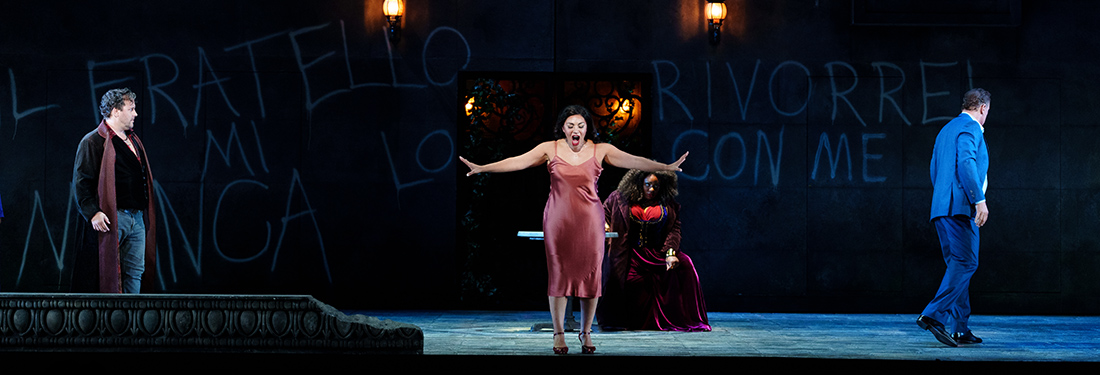
In Gutenberg! The Musical!, two hapless aspirants from New Jersey scrape their cash together and rent a Broadway theater for a night, intent on impressing the Manhattan cognoscenti with their fanciful farce about the inventor of the printing press. Sitting in the audience of the James Earl Jones Theatre, you might wonder how this slimly plotted show, which had a brief Off-Broadway run in 2007 before fading into relative obscurity, ended up occupying a piece of prime Main Stem real estate nearly two decades later. To that end, I have four words: Josh Gad. Andrew Rannells.
Gad and Rannells, the agreeable original stars of The Book of Mormon, prove that their charisma and chemistry has not diminished an iota since they ended their mission. In the interim, Rannells has returned to Broadway numerous times (Falsettos, The Boys in the Band, and a stint as King George in Hamilton), while Gad has largely worked on the big screen, most notably in Frozen. Together, they offer a master class in holding an audience in the palm of their hands and using their natural talents to flesh out the thinnest material. We should all celebrate the return of this dynamic duo.
And now, a word from David Fox:
Hello, all! This is basically Cameron’s review, with which I concur across the board—I’m just popping in with a few additional comments. The first is to agree absolutely on Gad and Rannells, whose entrance together gets the kind of cheering one rarely hears in a theater… and it deserves it. Their collective humor, charm and warmth is distinctively their own, but they also reminded me of the great comic duos of the past – Abbott and Costello, maybe. They’re terrific, and for many audiences that may be enough.
Producers and audiences should be thankful too, because Gutenberg! needs all the help it can get. Written by Scott Brown and Anthony King (who would later collaborate on Beetlejuice), the show stretches a single joke until it bleeds. Hungry to escape their picayune lives as nursing home karaoke performers, Bud (Gad) and Doug (Rannells) craft an extravagant—and largely fictional—tale about Johannes Gutenberg’s quest to bring literacy to the impoverished population of 15th-century Germany. The mission to mass-produce the Bible involves a satanic monk, a comely barmaid named Helvetica, and, for some unknown reason, an anti-Semitic street urchin. The results are as ludicrously overwrought as you might imagine.
At least we’re supposed to think they are. Brown and King never really fill out the shell musical, and even as I left the theater, I struggled to retain a single lyric or melody. What takes up the majority of the show are too-cute asides about the formal structure of musical theater: the “I Want” song, the grand finale, the eleven-o’clock number. These tangents seem to function as a way for a savvy audience to laugh and guffaw at how well they recognize these tropes, but the writing itself doesn’t trade on them in any meaningful way.
David: A central confusion for me is even defining what Gutenberg! is meant to be. Is it a musical about writing a musical? For much of the time, it seems to be, though at times that seems only a device to get to know Bud and Doug (not that we really do, but that’s a different problem). Assuming for the moment that it is about writing a really bad musical, I think most of us will reflect back on The Producers. That’s not a show I think all that highly of, but watching Gutenberg!, it kept coming back to me. At least one moment in The Producers I think is sheer genius, and perfectly set up. What the audience needs is one big number that achieves the almost sublimely awful set up—that answers the question: what is terrible enough to be the showstopper for (in that case) a jolly musical about Hitler? That number is, of course, “Springtime for Hitler,” which delivers exactly what the moment needs. Gutenberg! needs that too, but the fragmentary shards of song never offer it. Mostly we in the audience are waiting for them to stop so we can go back to watching the winning byplay between Rannells and Gad.
Gutenberg! also attempts to celebrate the hungry desire for a life in the theater, but there is something tacitly unsatisfying about watching two bona fide stars enact the pathetic struggles of these untalented creators. Although Gad and Rannells sell the material for all it’s worth, the show might gain a greater poignancy with unknown actors in the roles, rather than a sense that the production is winking at the megawatt status of its leads. It also doesn’t help that director Alex Timbers has largely instructed the pair to play outsize versions of themselves, meaning we can never lose ourselves in the few revealing moments that attempt any genuine character development.
David: Exactly. Great as the two of them are, I agree that they don’t actually make sense in this show. My take on Gutenberg! is that the set-up really calls for two actors who are college—or even better, high school—age. The kind of cluelessness that they display and their utter blindness to the silliness of the idea is sort of sweet if the pair is so young that we can look past it and imagine a future for them when they outgrow this silly fantasy. But our two stars here are in their forties—they say as much in the show. In that case, there’s something deeply sad here, including the final dream set that will never see the light of day. But nothing in the show acknowledges that; quite the contrary.
Timbers keeps the action hurtling at a relentless pace, but he cannot overcome the super-attenuated material either. (The show vastly overstays its welcome at two hours and 10 minutes, plus intermission.) Scott Pask’s set design similarly works too hard to look cute and cheap, and like the show itself, it gets swallowed up on a large Broadway stage. Bud and Doug don’t ultimately represent the future of Broadway, but Gad and Rannells surely do. Let’s bring them back in a vehicle deserving their talents. That’s news fit to print.
Photos: Matt Murphy
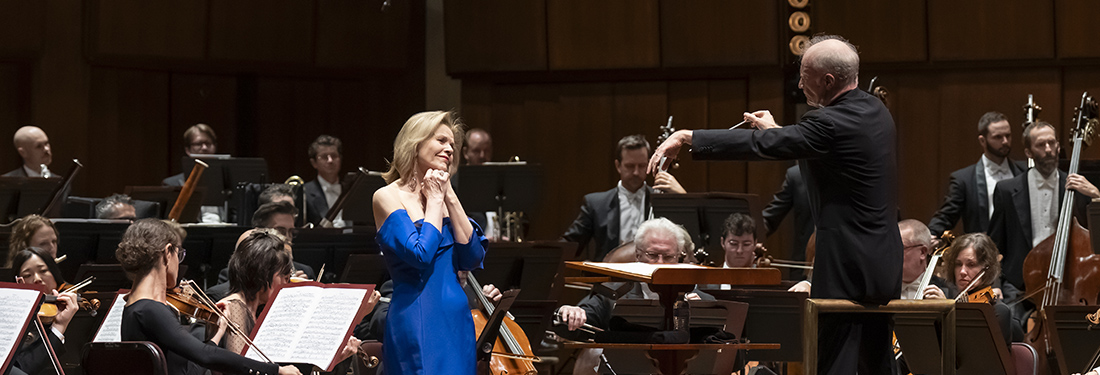
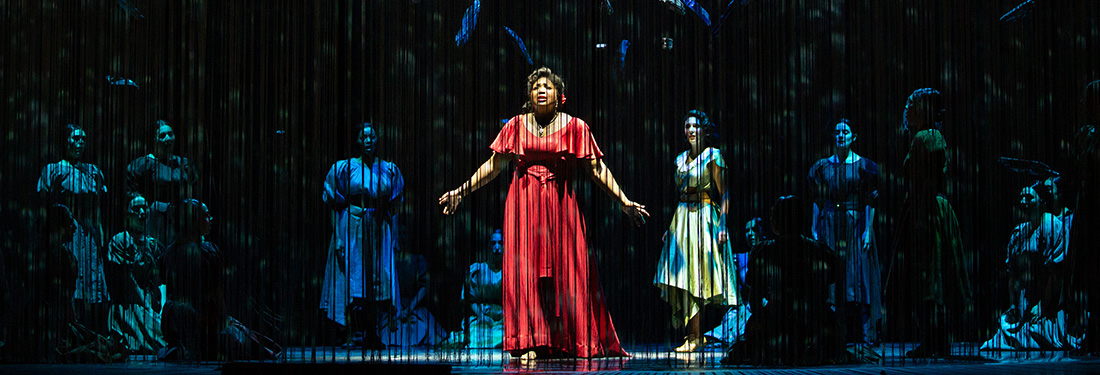
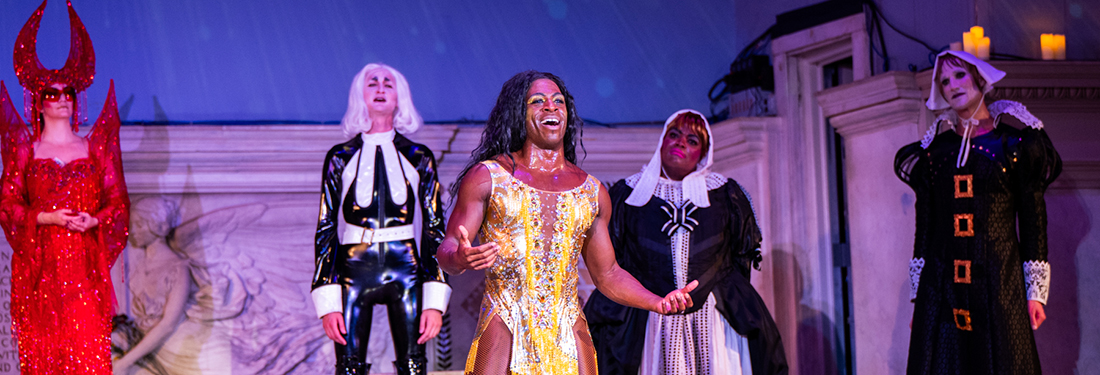
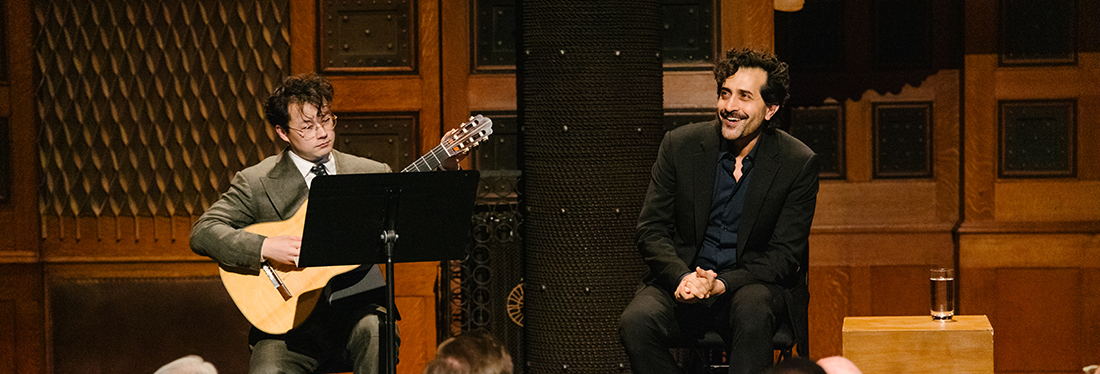
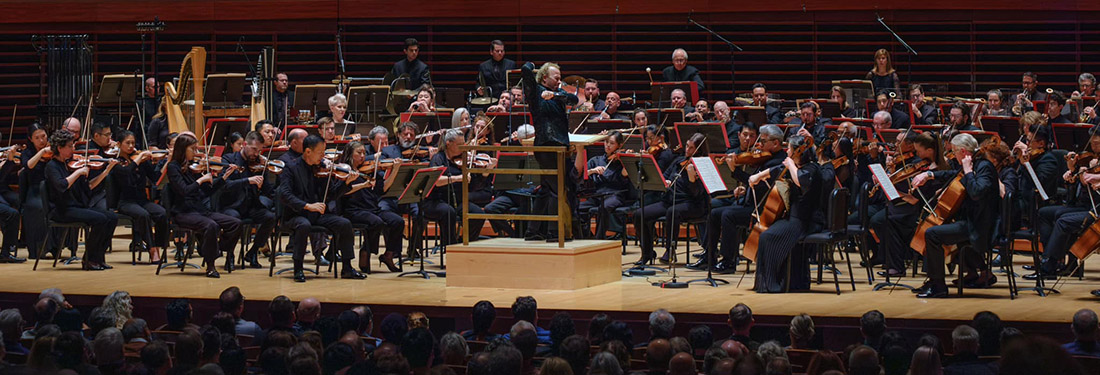
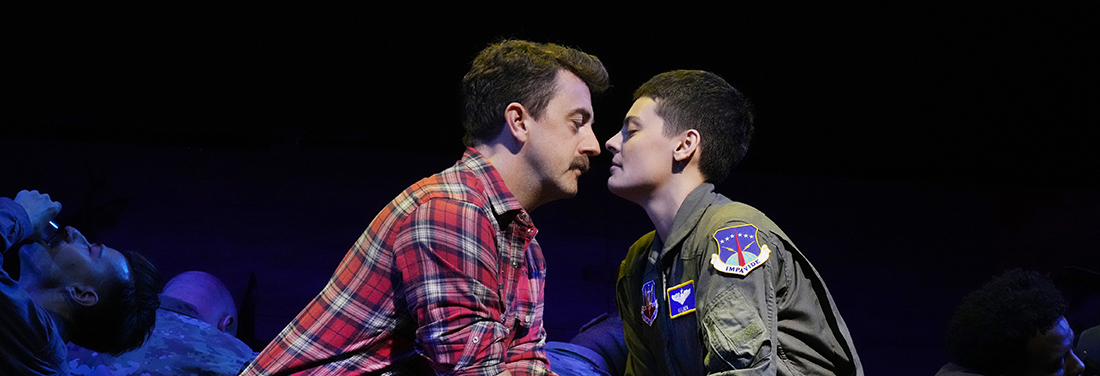
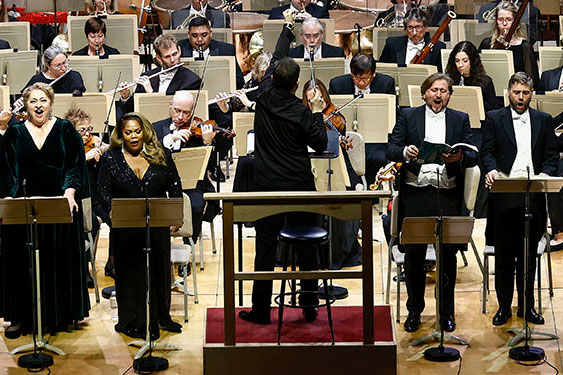
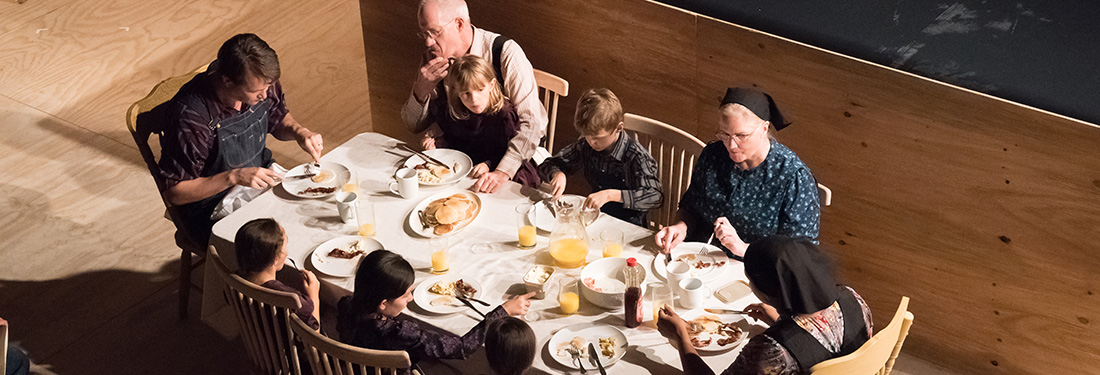
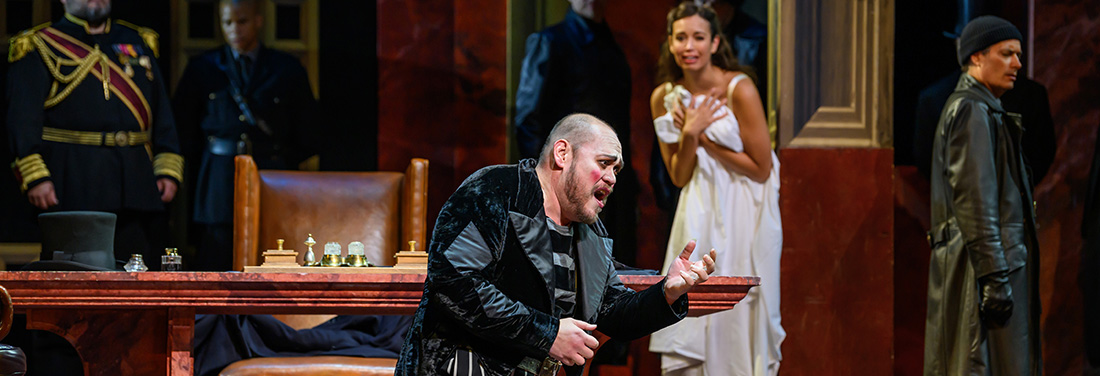
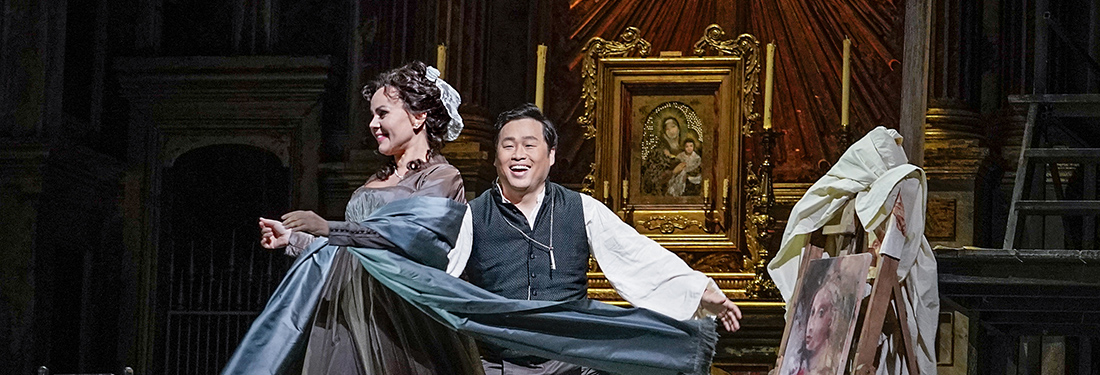
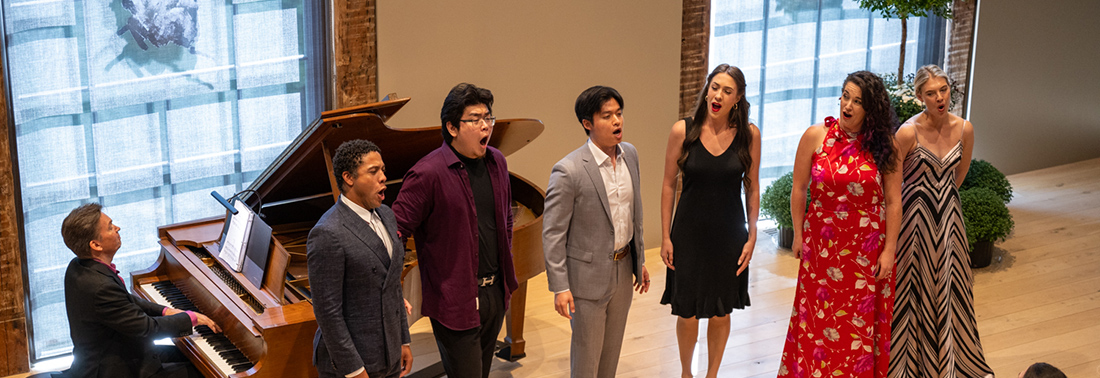
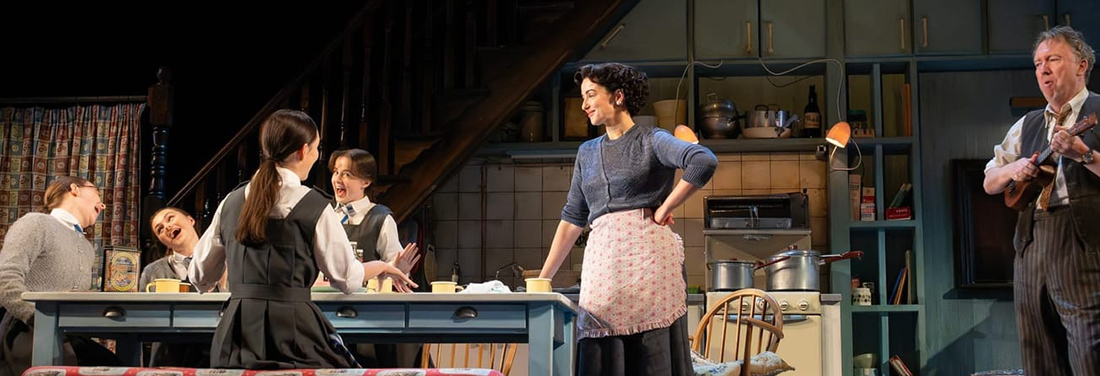
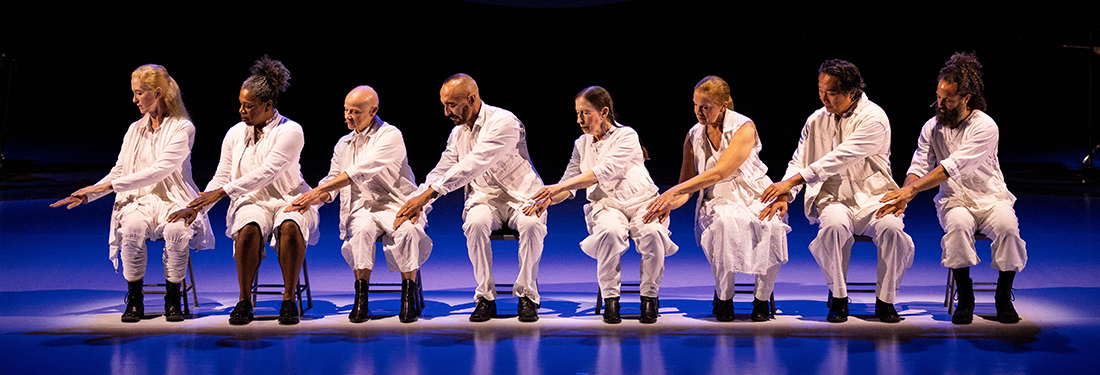
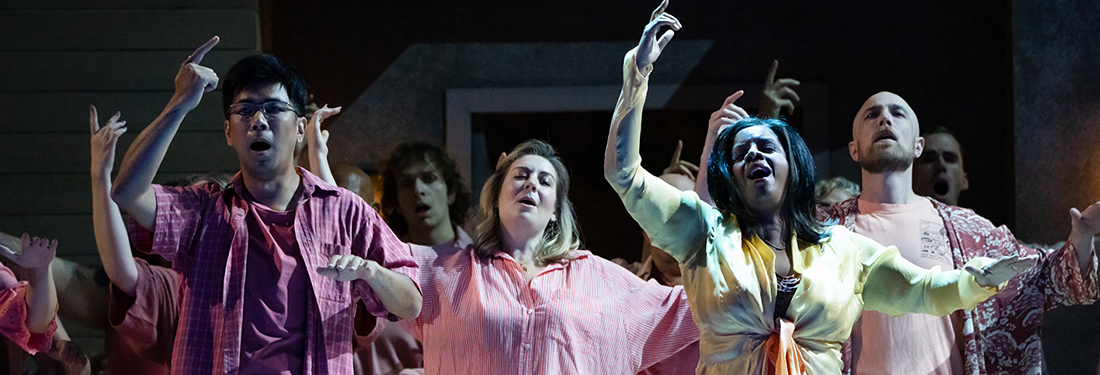
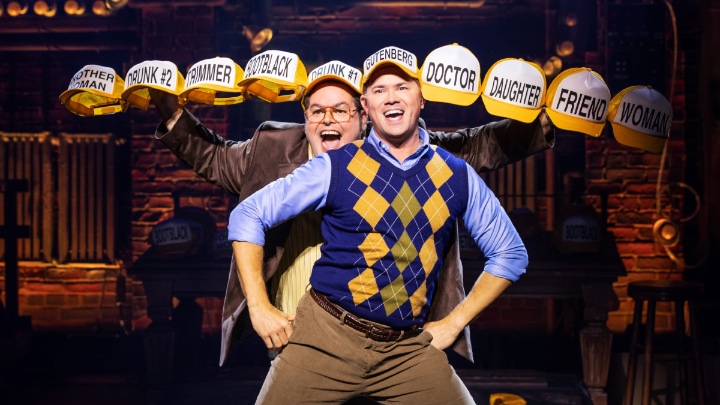
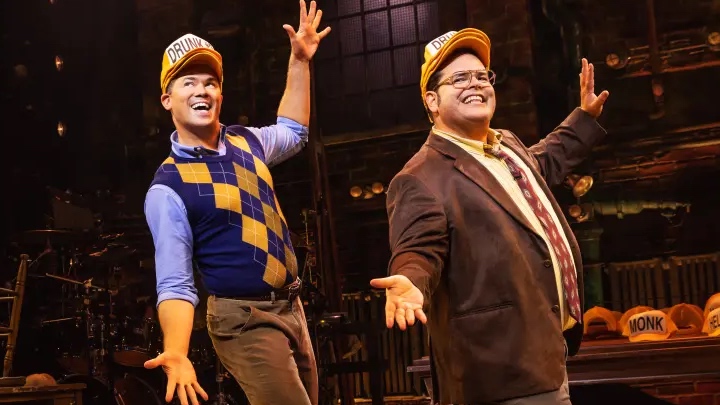

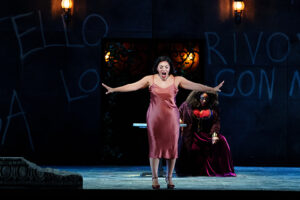
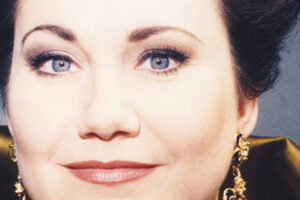
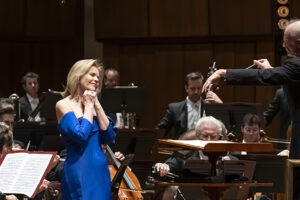

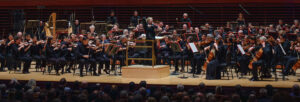
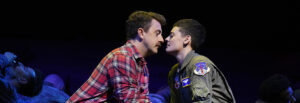



Comments